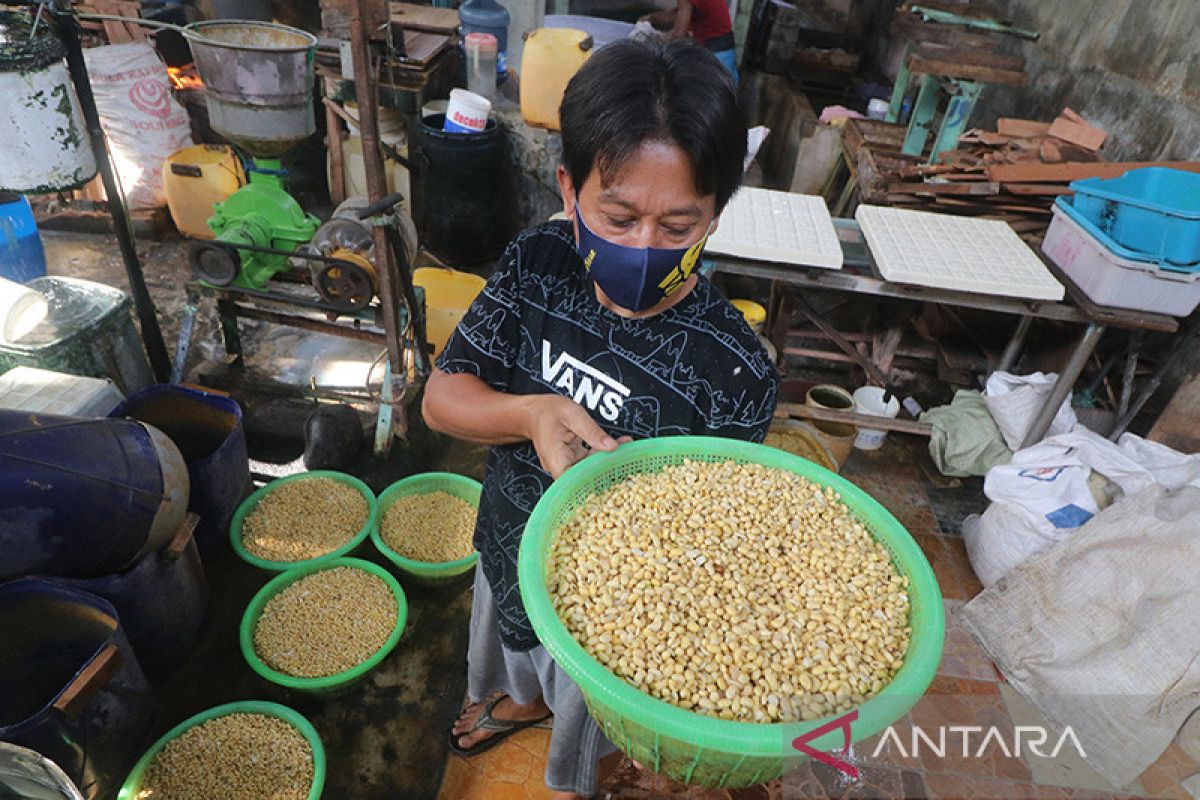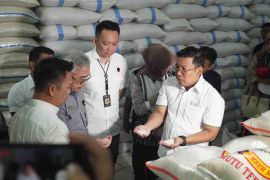Inflation in Indonesia, so far, is still quite under control. The quota for food products that has been in control, so far, can be relaxed when inflation starts to suppress. It happens that food prices in Indonesia are already more expensive than thoJakarta (ANTARA) - The government should consider a policy to relax food imports to prevent commodity shortages and spikes in their prices due to internal and external factors, the Center for Indonesian Policy Studies' (CIPS') associate researcher stated.
"Inflation in Indonesia, so far, is still quite under control. The quota for food products that has been in control, so far, can be relaxed when inflation starts to suppress. It happens that food prices in Indonesia are already more expensive than those in the global market due to import restrictions," CIPS associate researcher Krisna Gupta noted in a statement on Monday.
Gupta believes that import relaxation could be used to maintain price stability, for instance, the increase in the price of rice, which is currently still more under control as compared to the pricing of wheat, corn, and soybeans.
The prices of several international food commodities were affected by the conflict between Russia and Ukraine. However, Indonesia has not had close trade relations with the two countries as is apparent from the total import value of the two countries contributing merely some one percent of Indonesia's total imports. Meanwhile, the value of Russian and Ukrainian investment in Indonesia is also not significant.
However, Gupta noted that both are the main sources of imported goods for Indonesia. Ukraine supplies some 24 percent of Indonesia's total wheat imports in 2020. Meanwhile, imported fertilizers from Russia account for some 15 percent of Indonesia's total fertilizer imports.
The two countries also extensively procure vegetable oil products (palm oil) from Indonesia, despite the number of transactions constituting only some 0.5 percent of Indonesia's total palm oil exports in 2020.
Although imports of wheat from Ukraine are not too high, Indonesia still needs to look for other sources of wheat suppliers to avoid the impact of shortages when the war continues. Efforts should be made to avoid scarcity and increase in the price of food sourced from wheat.
Wheat is mostly used for the production of wheat flour. Wheat is not only used by consumers but also by producers of instant noodles, pasta, bread, cakes, and market snacks. In fact, without war, the world's wheat prices are rising due to production problems caused by weather issues.
Gupta stated that Indonesia should also be wary of the rising prices for other food commodities. Disruption in the worldwide supply of fertilizers can likely spike prices, which are already high due to gas prices and China’s ban on fertilizer exports. The lack of supply of fertilizers can increase the prices of commodities, such as corn and soybeans.
According to Gupta, the availability of fertilizer supply is also crucial to fertilize plants. Indonesia's gas prices also continue to rise in line with the increasing demand for smelter factories that began operating.
He noted that relaxation could be conducted by opening import quotas. Some food commodities are subject to import quotas in order to maintain the farmer's exchange rate and also to maintain price volatility. When domestic supply is deemed sufficient, the import tap will be closed. However, when the price is deemed too high, then the import tap is opened.
“However, when the world's food prices rise too high above the domestic prices, then these prices will not decrease even though the import quotas are opened freely. Hence, we need to open the import tap when the domestic prices rise. As long as international prices are always lower than the domestic prices, this method will be able to control inflation,” he explained.
Translator: Katriana
Editor: Fardah Assegaf
Copyright © ANTARA 2022












